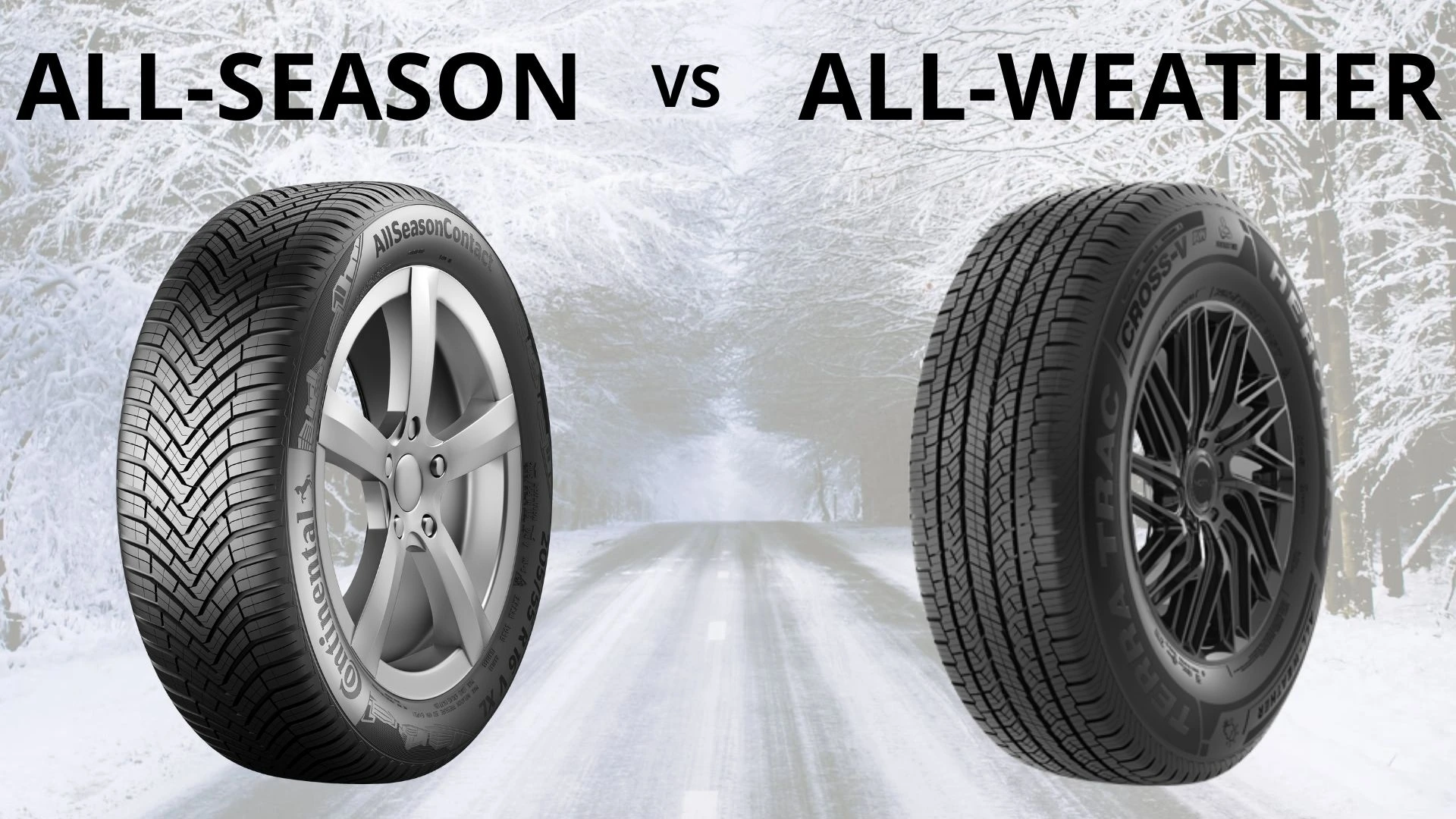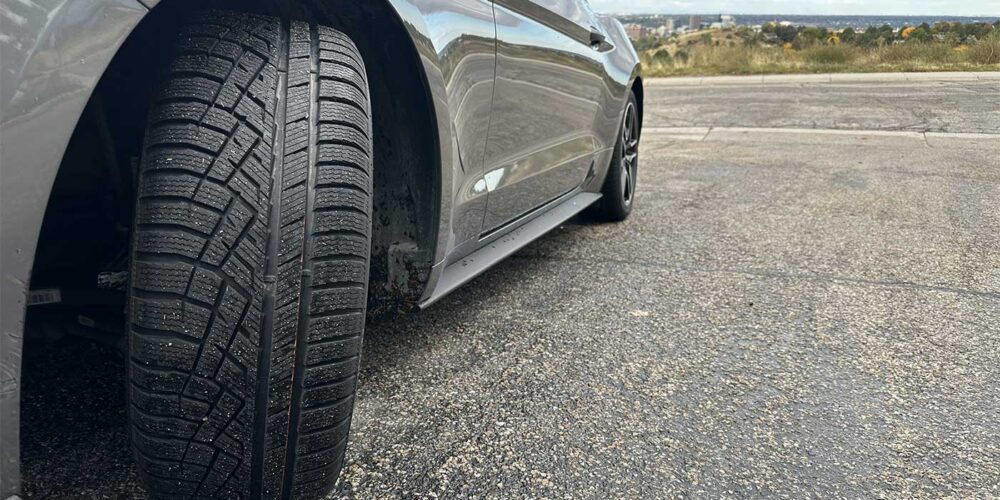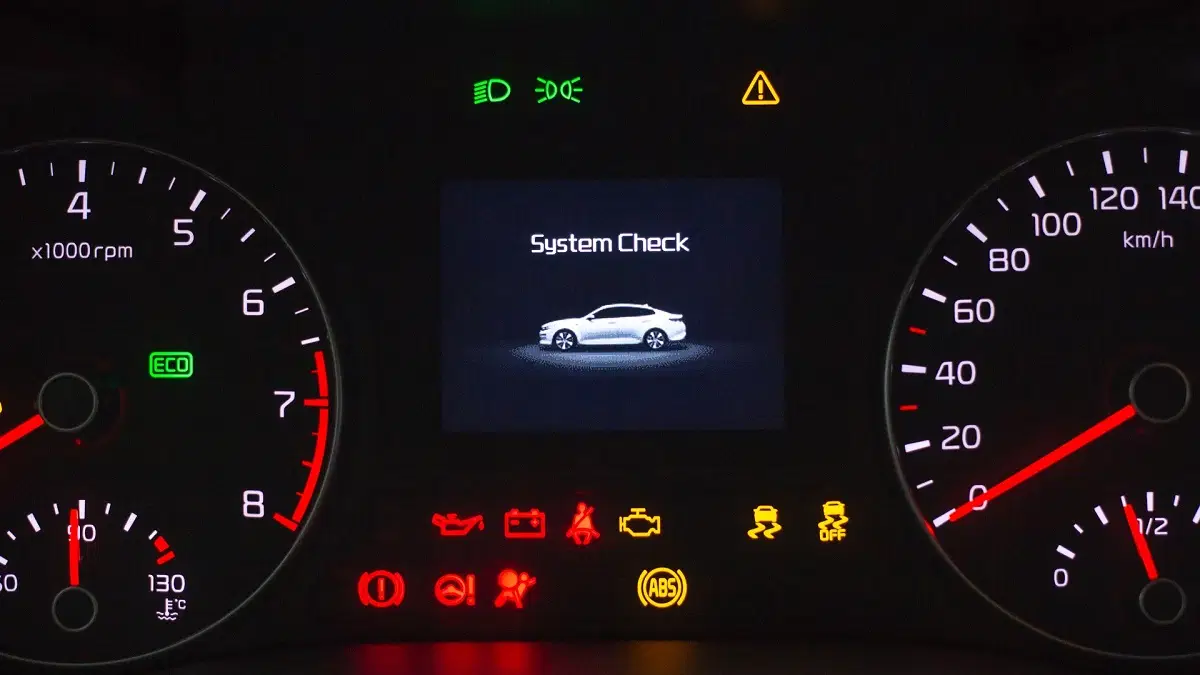
Table of Content
▼- Understanding All Season vs All Weather Tyres
- All-Season Tyres
- Key Features
- All-Weather Tyres
- Key Features
- Choosing Your Perfect Tyre
- Key Features
- Advantages of Each Tyre
- All-Season vs All-Weather Tyres
- When to Choose All-Season Tyres
- When to Choose All-Weather Tyres
- Recommendations for Indian Conditions
- Conclusion
In automotive tyres, the all season vs all weather tyres debate matters because it directly influences your vehicle’s safety and handling in different weather conditions. Choosing wisely ensures you get the best performance year-round.
When it comes to ensuring your vehicle’s performance and safety, your choice of tyres plays a pivotal role. It’s not just about having rubber meet the road, it’s about making the right tyre choice for your diverse and ever-changing conditions.
Understanding All Season vs All Weather Tyres
To make an informed decision between all season vs all weather tyres, it is essential to understand what each type offers and how they perform across different weather conditions.
All-Season Tyres

As the name suggests, all-season tyres are designed for year-round use in moderate climates. Their rubber compound provides balanced performance on dry, wet, and mildly cold roads, making them ideal for drivers in areas with light winters and occasional rain.
Key Features
- Versatility: Handle both wet and dry roads efficiently.
- Longevity: Harder rubber compounds ensure a longer tread life.
- Cost-Effective: Generally more affordable than all-weather tyres.
- Comfort: Provide a quiet, smooth ride for city and highway driving.
- Best Suited For: Drivers in tropical or mildly cold Indian regions.
All-season tyres are designed for warm to mild weather, performing best in spring, summer, and autumn. Their rubber compound provides balanced traction on dry and wet roads, ensuring stability when temperatures are above 7°C.
All-Weather Tyres

All-weather tyres combine the traits of all-season and winter tyres. They’re made for regions where winters are colder but not extreme enough for studded winter tyres.
These tyres come with 3PMSF certification, a symbol that guarantees they meet snow traction standards.
Key Features
- Winter-Ready: Softer rubber stays flexible in cold temperatures.
- Enhanced Safety: Better grip on icy, slushy, or snowy roads.
- All-Year Use: No need to switch tyres between seasons.
- Reliable Wet Performance: Strong traction during monsoons.
- Best Suited For: Areas with unpredictable weather conditions.
When comparing all season vs all weather tyres, note that all-weather tyres have slightly shorter tread life due to their softer rubber but deliver better winter traction.
Choosing Your Perfect Tyre
Choosing between all-season and all-weather tyres involves more than just reading labels. It’s a decision that can influence your vehicle's safety and driving experience.
Here are the key factors you should consider:
Climate and Location
- If you face harsh winters or frequent snowfall, an all-weather tyre is likely the better choice.
- If you live in a region with moderate weather, occasional rain or light snow, all-season tyres can suffice.
Driving Habits
- Daily commuter in mild climates All-season tyres offer a comfortable, cost-effective option.
- Adventurer who drives through rain, snow, and variable terrain: All-weather tyres provide superior safety and performance.
Budget
- All-season tyres tend to be more budget-friendly upfront.
- All-weather tyres may cost more initially, but they may eliminate the need for seasonal tyre swaps or buying dedicated winter tyres.
Key Features
When selecting tyres, these features matter:
- Rubber Compound: Softer rubber maintains grip in colder temps, relevant for all-weather tyres.
- Tread Depth & Pattern: Deeper grooves evacuate water and slush better, especially in all-weather tyres.
- Certification Symbols: The 3PMSF symbol indicates severe snow-service rated, see more under all-weather features.
- Fuel Efficiency & Noise: Harder rubber and less aggressive tread patterns in all-season tyres deliver better fuel efficiency and a quieter ride.
- Tread Life: All-season tyres tend to last longer in moderate climates all-weather tyres may wear faster but offer broader conditions coverage.
Advantages of Each Tyre
Advantages of All-Season Tyres:
- Balanced performance across dry, wet, and mild winter roads.
- Better fuel efficiency and longer tread life in moderate climates.
- Quieter, smoother ride for everyday driving.
Advantages of All-Weather Tyres:
- Superior traction in snow, ice, and wet conditions.
- Year-round usability without needing dedicated winter tyres.
- Ideal for regions with unpredictable or mixed weather, rain, slush, and mild snow.
All-Season vs All-Weather Tyres
|
Feature |
All-Season Tyres |
All-Weather Tyres |
|
Tread & Rubber |
Harder compound, moderate grooves |
Softer compound, deeper aggressive tread |
|
Cold Weather Grip |
Limited below 7 °C (45 °F) |
Maintains traction in colder conditions |
|
Certification |
Usually M+S |
Includes 3PMSF (severe snow service) |
|
Tread Life |
Longer |
Slightly shorter |
|
Cost |
Lower upfront cost |
Higher upfront cost |
|
Ideal Region |
Mild climate zones |
Mixed weather zones (rain, snow, slush) |
When to Choose All-Season Tyres
Choose all-season tyres if:
- You drive mainly in warm or moderate climates.
- You prefer a budget-friendly, long-lasting tyre.
- You plan to switch to winter tyres during extreme cold.
- You want quiet performance on dry and wet roads.
When to Choose All-Weather Tyres
Choose all-weather tyres if:
- You live in a region with unpredictable winters or monsoons.
- You want year-round safety without tyre swaps.
- You prioritise traction on snow, ice, or slush.
- You need tyres that adapt well to India’s mixed climate.
The advantages of all-weather tyres lie in their flexibility, performing well across diverse road conditions.
Recommendations for Indian Conditions
In India’s context with monsoons, mild winters in many cities, and region-specific climate variations, here’s how you might approach your tyre choice:
- If you are driving primarily in a city with mild winters and heavy monsoon rains (e.g., Mumbai, Bangalore), all-season tyres offer good value and performance.
- If you travel across terrains or experience both monsoon and occasional cold weather, all-weather tyres provide better safety and versatility.
- For regions with heavy winter snow or off-road mountain driving, you might still consider switching to dedicated winter tyres all-weather tyres may not fully substitute for severe winter conditions.
Conclusion
Choosing between all season vs all weather tyres comes down to understanding your driving conditions, climate, and performance expectations. For many everyday drivers in India who encounter wet roads, monsoon rain and mild winters, all-season tyres deliver excellent value. But if you also face cold mornings, rain, slush or plan long drives through variable terrain, opting for all-weather tyres adds a layer of safety and traction year-round.
In short, the tyre you choose should align with your region’s typical weather, your driving habits, and your budget. Whether you opt for all-season tyres with longer tread life or all-weather tyres for enhanced grip in adverse conditions, making an informed decision ensures you stay safe and drive with confidence across seasons.
Karan Bhatia
Karan Bhatia is an automobile expert and reviewer with 8+ years of experience test-driving cars, bikes, and EVs. He provides honest, detailed, and practical reviews that highlight performance, design, safety, and value for money. His expert insights help readers make confident choices when buying their next vehicle.


_1771411501.webp)


